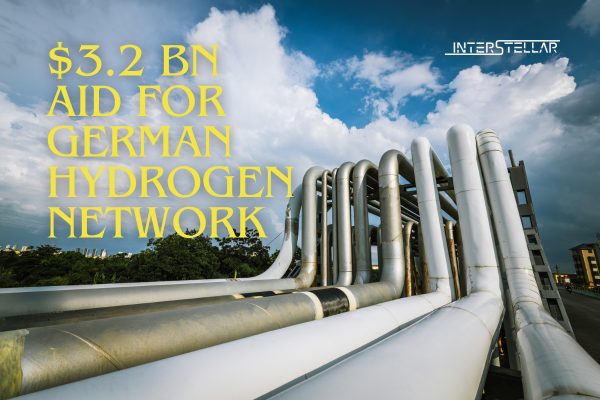EU Approves €3 Billion German State Aid for Hydrogen Pipeline Network
The EU approves approximately €3 billion ($3.2 billion) in German state aid to support the development of a hydrogen pipeline network, known as the Hydrogen Core Network (HCN).
Financial Support for Hydrogen Infrastructure
Berlin plans to provide financial guarantees to companies building and operating the €20 billion network. These guarantees will help the companies secure more favourable loans to cover initial losses during the ramp-up phase from 2025. The Commission stated that promoting hydrogen uptake outweighs any potential distortion to EU competition and trade from the scheme.
Germany’s ruling coalition reached an agreement in April to establish this financing mechanism and extend the construction deadline to 2037. They also offered investor protections in case of bankruptcy.
Hydrogen’s Role in Green Energy Transition
Hydrogen, which can be produced from wind and solar power, is seen as a crucial component in achieving net-zero greenhouse gas emissions. It is regarded as the only viable carbon-free energy source for many heavy industry processes, including steel, chemicals, refining, glass, and ceramics sectors.
Germany aims to develop more than 9,700 km (6,000 miles) of hydrogen pipelines. The network will utilize existing natural gas transmission infrastructure for 60% of its length to supply hydrogen to industrial sites that cannot switch to electricity.
Green hydrogen is generated by splitting water molecules through electrolysis using renewable energy. The German pipeline network will connect northern wind power parks to southern industrial centres.
Private Sector Involvement
Future private sector network operators will seek returns on their investments by charging user fees for the use of the hydrogen pipelines.





